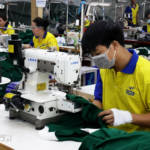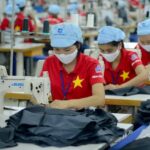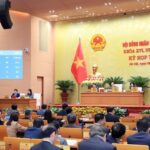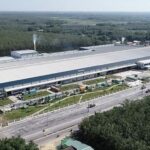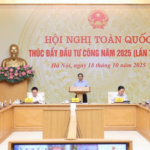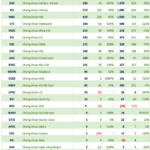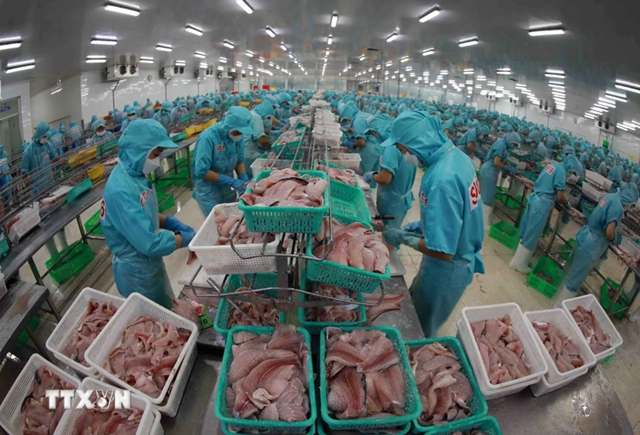
Processing tra fish fillets for export. (Photo: Vu Sinh/VNA)
|
In an interview with Vietnam News Agency correspondents in Australia, Professor Emeritus Hal Hill of the Crawford School of Public Policy at The Australian National University (ANU) assessed Vietnam’s socio-economic development in 2024, stating that the country’s strong economic growth momentum has been maintained and recognized in the latest Asian Development Outlook by the Asian Development Bank (ADB).
This is one of the examples of international rankings that showcase Vietnam’s impressive progress in economic and social terms.
According to Professor Hal Hill, Vietnam is on its way to becoming a “high-income economy,” which would have been unimaginable in the late 20th century. However, he also pointed out that the country is facing several developmental challenges. The global economic and security environment is highly volatile and uncertain, particularly due to the relationship between the two largest economies in the world, China and the United States.
Furthermore, high-income economies necessitate significant policy reforms, especially in terms of higher-quality governance, stronger and more independent institutions (including the judiciary), and a level playing field for all businesses, regardless of ownership.
Professor Hal Hill stated that the “easy phase” of industrialization oriented towards exports is over, wages are rising, and the dualistic economic structure (referring to the coexistence of traditional and industrial sectors) will need modification.
Regarding foreign relations, Professor Hal Hill suggested that Vietnam should diversify its economic and strategic partnerships, especially in an era of global instability. Hence, the upgrades in relations to a Strategic Partnership with Australia (March 2024), France (October 2024), and Malaysia (November 2024) are significant moves by Vietnam in 2024.
However, he noted that these upgraded agreements should not merely be “pieces of paper” but must translate into actions, especially in fostering business-to-business relationships.
In Professor Hal Hill’s view, Australia and Vietnam share a close working relationship with great potential for rapid development, and the Vietnamese community in Australia plays a crucial role in facilitating bilateral relations.
Nevertheless, he pointed out that Australia’s outward investment is still primarily directed towards traditional business partners, particularly the United States and the United Kingdom, missing out on the evident dynamism in Southeast Asia.
Layton Pike, a member of the Advisory Board of the Australia-Vietnam Policy Institute, highlighted that balancing regional and global relationships is a notable feature of Vietnam’s foreign policy. In 2024, Vietnam and Australia elevated their relationship to a Strategic Partnership.
He expressed confidence that after the leadership transition in 2024, Vietnam would continue to navigate effectively in the face of increasing geopolitical complexities in the coming years.
Thanh Tu
The Evolution of Vietnam’s Textile Industry: Navigating Challenges and Opportunities
The textile industry witnessed a remarkable recovery in 2024, paving the way for a confident and ambitious future. This resurgence lays the foundation for the sector to continue its strategic development, with a vision to thrive and excel in 2025 and beyond, marking a new era of prosperity and progress.
“The Hanoi Target: Aiming for 6.5% Growth by 2025”
On December 10th, the Hanoi People’s Council, at its 20th session, passed a resolution on the city’s socio-economic development plan for 2025. The resolution sets an ambitious target of achieving a 6.5% growth rate in the regional gross domestic product (GRDP) while aiming for a per capita GRDP of 172.4 million VND.
‘Breaking’: Ministry Merger Proposal; Eye-Popping Lunar New Year Bonuses Revealed
Supplementing the estimated reform salary cost; details of the plan to organize the apparatus of the Ministry of Finance, the Ministry of Planning and Investment, and the Ministry of Industry and Trade; FDI enterprises defaulting on billions of dong in taxes and leaving the country; enterprises in Binh Duong province offering the highest Tet bonus of up to nearly 400 million VND/person… were notable information last week.

























